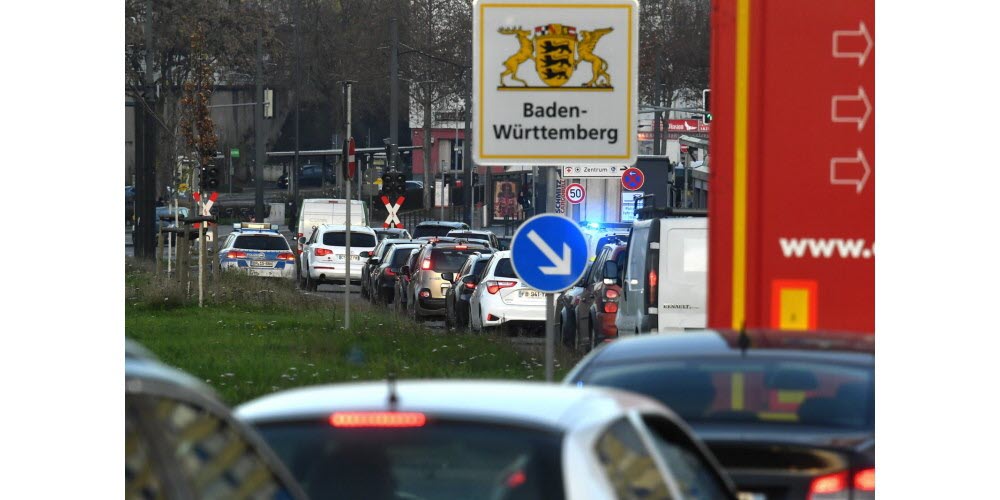As in all of Germany, confinement is extended until 14 February in Baden-Wuerttemberg. The border with France remains open, but beware: shopping is not considered an essential reason.
More than eight hours of talks were needed on Tuesday for Chancellor Angela Merkel and the ministers-presidents of Germany’s 16 states to finally decide on a tightening of the containment in force across the Rhine since 15 December.
There are three major measures that apply across the country. Scheduled to last until January 31, this containment is extended until February 14. Shops other than food shops, sports and entertainment halls, cinemas remain closed, public events banned. The wearing of surgical masks or FFP2 becomes mandatory in public transport and shops. Finally, business leaders need to introduce telework wherever possible.
Border: Racing is not an essential reason
The border between Alsace and Baden-Wuerttemberg finally remains open. The return of border controls has not been decided on Tuesday by Bavarian Minister-President Markus Soder (CSU) and his Baden-Wuerttemberg counterpart Winfried Kretschmann (Greens). At least not at the moment.
“Viruses do not stop at borders,” Winfried Kretschmann said at a press conference in Stuttgart on Tuesday night. The boss of Baden-Wuerttemberg reiterated his concern about the spread of variants of the virus, much more contagious. “The question is not whether these variants will appear in us, but when they will appear. We must not give in to panic, but to wait would be irresponsible,” Kretschmann said. The Minister-President said that in the face of this threat, Chancellor Angela Merkel will plead before the Council of the European Union on Thursday in favour of harmonising European health rules. “With this synchronization, we want to avoid further border restrictions,” Kretschmann said.
The principles of German containment are superimposed on the 24-hour rule
So far, nothing changes on the border between Alsace and Baden-Wuerttemberg. For Alsatians, the 24-hour rule continues to apply. But the principles of German containment are superimposed on it.
It is therefore possible for an Alsatian to stay 24 hours across the Rhine without getting quarantined and without presenting a negative Covid test, but on the condition that it is for an essential reason: a professional reason; Assistance to a vulnerable person A child’s schooling In the case of a divorced mixed couple, visiting a child; or a medical appointment.
But it is not currently possible to go specifically to Germany for shopping or skiing in the Black Forest. With regard to racing, there is a tolerance for people crossing the border for a compelling reason — work, for example. These people can take advantage of the ride to stop shopping.
The school question, an election issue?
Finally, in terms of education, Baden-Wuerttemberg differs from the rest of Germany. Nurseries and primary schools could be re-opened as early as1 February in a staggered manner, i.e. depending on the age group. This issue is very sensitive in the Land. The ruling CDU-Green coalition is tearing itself apart on the issue. President Kretschmann (Greens) is reluctant to do so, but Education Minister Suzanne Eisenmann (CDU) wants to reopen schools as soon as possible. Beyond the health and school issue, this controversy seems to mark the beginning of the campaign for the Landtag elections scheduled for 14 March, a vote in which Kretschmann and Eisenmann will meet face to face.
35,550 Covid patients in Baden-Wuerttemberg
In Baden-Wuerttemberg, the incidence rate, i.e. the number of new cases per 100,000 inhabitants over seven slippery days, is 105.
Currently, 35,550 people are sick of Covid in the Land, 510 are hospitalized in intensive care. On Tuesday, January 19, 1,685 new cases were registered.
Last week, an average of 1,768 new cases were reported each day. Since the beginning of the pandemic last spring, 6,323 patients have died from Covid in Baden-Wuerttemberg.
